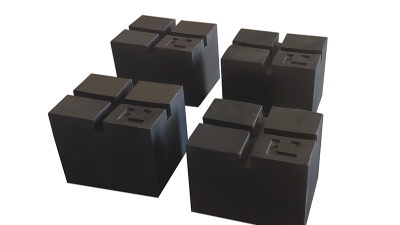The Future of Portable Trolley Jacks in Global Manufacturing
Table of Contents
- The Impact of Automation on Portable Trolley Jack Designs
- Emerging Materials Enhancing the Performance of Trolley Jacks
- Smart Technology Integration: The Future of Trolley Jack Usability
- Sustainability Trends in the Manufacturing of Portable Trolley Jacks
- Market Analysis: Consumer Preferences Shaping Trolley Jack Innovations
- Global Regulatory Standards Influencing Trolley Jack Production Strategies
- Maximizing Vehicle Maintenance Efficiency: Insights from Recent Industry Reports on Portable Car Quick Lift Rubber Pads
- FAQS
- Conclusion
- Related Posts
In today’s fast-changing world of global manufacturing, it's clear that the need for smarter and more efficient lifting solutions is really taking off. Among these tools, the Portable Trolley Jack is definitely a standout—it's super versatile and helps boost productivity across all kinds of industries. At Yantai Tonghe Precision Industry Co., Ltd., we’re deeply aware of how important it is to keep up with these trends. As manufacturing becomes more mobile and efficient, the Portable Trolley Jack not only meets the practical needs of workers but also showcases some pretty cool advancements in design and function. In this blog, we’ll dive into what the future holds for Portable Trolley Jacks—especially some alternative types that could totally shake up how industries handle lifting jobs. Basically, they're set to drive innovation and give businesses a real competitive edge.
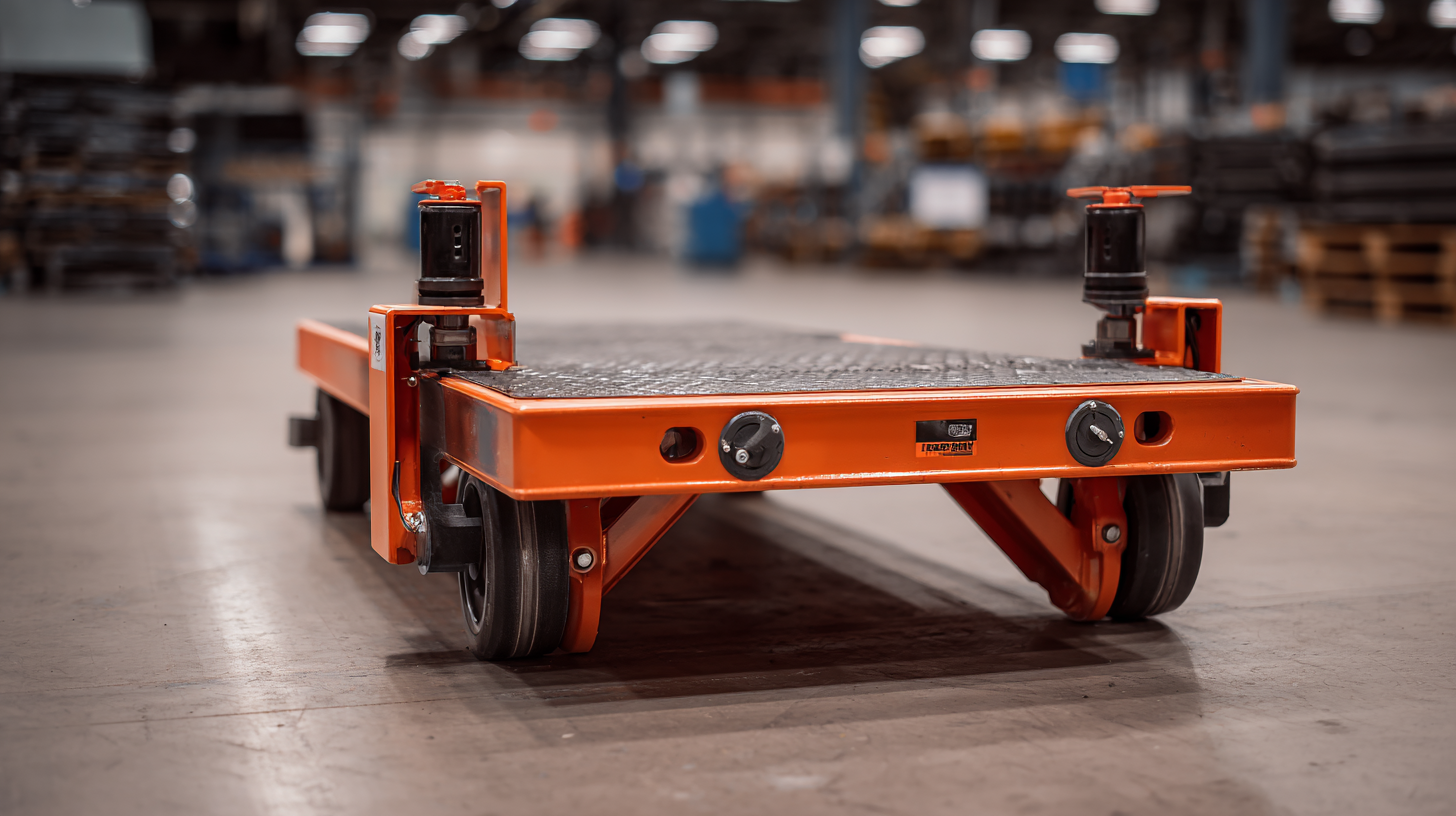
The Impact of Automation on Portable Trolley Jack Designs
You know, as the global manufacturing scene shifts more and more towards automation, the portable trolley jack industry is going through some pretty big changes. It’s not just about making things faster anymore—design and functionality are evolving too. According to a recent report from the International Federation of Robotics, the use of industrial robots in manufacturing is expected to grow around 15% each year. That means there’s a growing demand for smarter, easier-to-use maintenance tools, like portable trolley jacks.
These days, folks are really into the idea of smart tech integrating with these jacks. Things like automatic height adjustment, load sensors, and even connectivity with mobile apps are slowly becoming standard to make them safer and more user-friendly. I saw in a recent survey of automotive tools that nearly 70% of DIY enthusiasts are on the lookout for jacks with better safety features and easier operation. This isn’t just a trend; it really shows that consumers are craving innovation. And manufacturers? They’re definitely listening, adapting to the changing needs in the auto repair world. The result is a more connected and smarter way to use portable trolley jacks—that’s tech finally working for us, right?
Emerging Materials Enhancing the Performance of Trolley Jacks
You know, when it comes to portable trolley jacks, things have really started to shift lately, thanks to new materials hitting the scene. Old-school trolley jacks were mostly built from heavy metals and alloys—sure, they’re super strong, but lugging them around or fitting them into tight spots could be a real pain. Now, with the rise of advanced composites and lighter metals like aluminum and carbon fiber, things have gotten a lot better. These new materials cut down the weight quite a bit but still keep the jacks strong enough to handle heavy lifting, making them way easier to move around, especially in cramped spaces.
And it doesn’t stop there. Manufacturers are also turning to tough polymers and smart coatings that help these jacks last longer and perform better. These materials are designed to fight off corrosion and wear and tear, so your jack stays reliable even in rough conditions. Plus, with more companies focusing on eco-friendly practices, you’ll see more recyclable materials being used, which is pretty great for the planet. Overall, this shift towards modern materials is a pretty big deal—it’s shaping the future of portable trolley jacks to be more efficient, durable, and sustainable. Honestly, it’s pretty exciting to think about what’s coming next!
The Future of Portable Trolley Jacks in Global Manufacturing
Smart Technology Integration: The Future of Trolley Jack Usability
You know, the way smart technology is being integrated into portable trolley jacks really is changing the game for manufacturing around the world. As more industries move towards automation and digital tools, there’s a growing buzz about equipment that can sync up smoothly with existing systems. These smart trolley jacks, packed with sensors and connectivity options, can give real-time data on everything—performance, maintenance needs, or how they’re being used. That means operators can keep a closer eye on things, which leads to smoother operations, less downtime, and a safer work environment. It’s pretty cool how this all helps make everything more efficient.
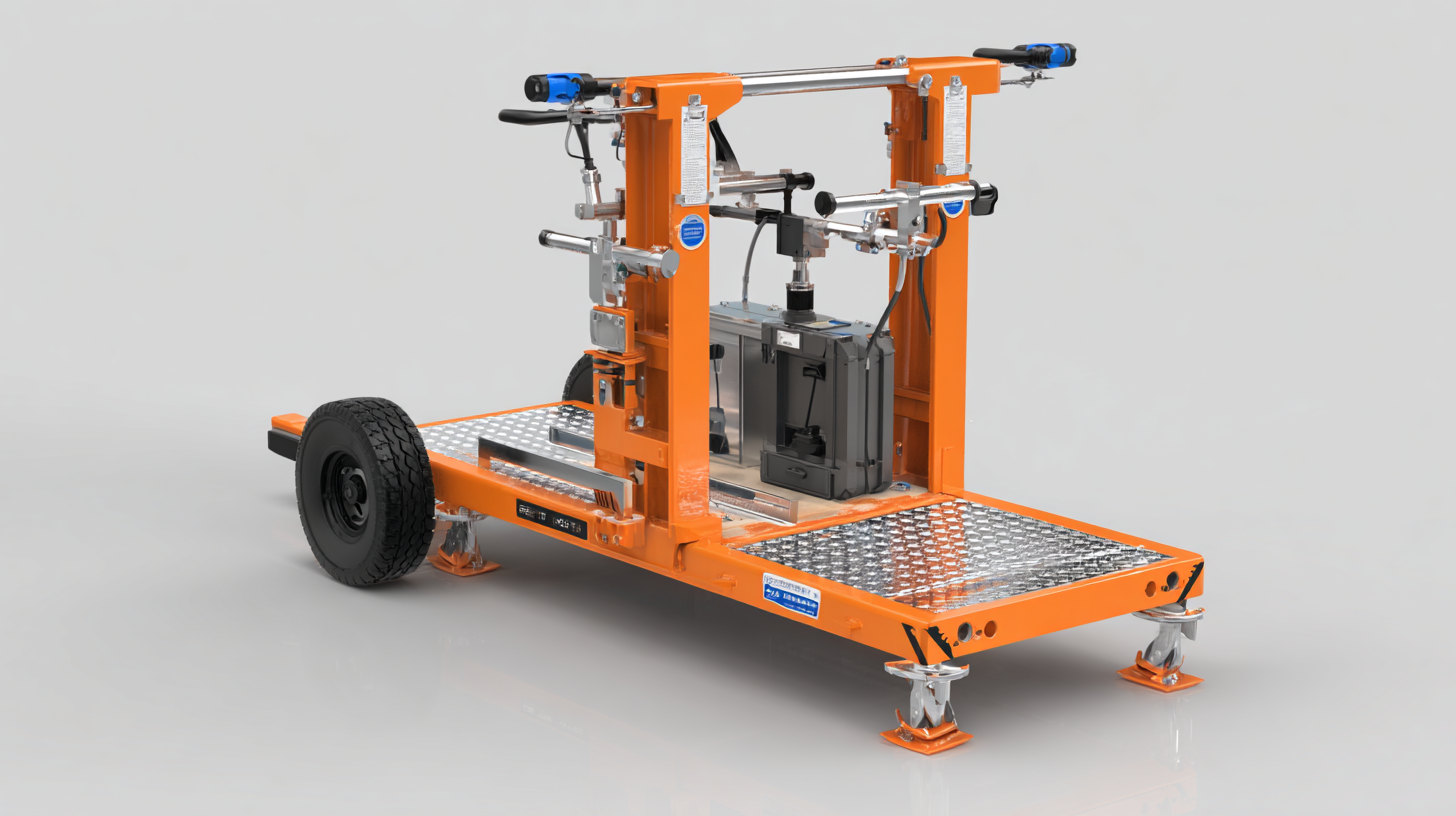
And on top of that, with all the talk about sustainability and saving costs, it’s clear that smart tech in trolley jacks is more important than ever. These innovations don’t just make life easier—they also help reduce the environmental footprint of manufacturing. Looking ahead, it’s exciting to see manufacturers adopting features like predictive maintenance, better load management, and user-friendly interfaces. As companies look to do more with less and boost productivity, smart portable trolley jacks are definitely going to play a bigger role in shaping the future of manufacturing worldwide.
Sustainability Trends in the Manufacturing of Portable Trolley Jacks
You know, if you look at how manufacturing is changing these days, it's pretty clear that
sustainability is becoming a huge deal for a lot of industries.
Take portable trolley jacks, for example—they're seeing companies rethink everything
from the materials they use to how they design and produce them, all in an effort to be kinder to the environment.
For companies like Yantai Tonghe Precision Industry Co., Ltd.,
who are into hydraulic control systems and car lifts, going green isn’t just about doing the right thing for the planet—
it actually helps their reputation and makes their operations smoother too.
These days, it’s pretty common to see new manufacturing tricks, like using recycled materials
or cutting down energy use during production. Yantai Tonghe is all about adopting these
kinds of sustainable practices—they want to make top-notch portable trolley jacks that also tick the boxes for
global sustainability goals. As more folks start looking for eco-friendly
products, businesses that truly commit to responsible manufacturing are going to stand out in the crowded market.
By constantly pushing forward with research and innovation, Yantai Tonghe
is really leading the way toward a more sustainable future in machinery and automotive tech.
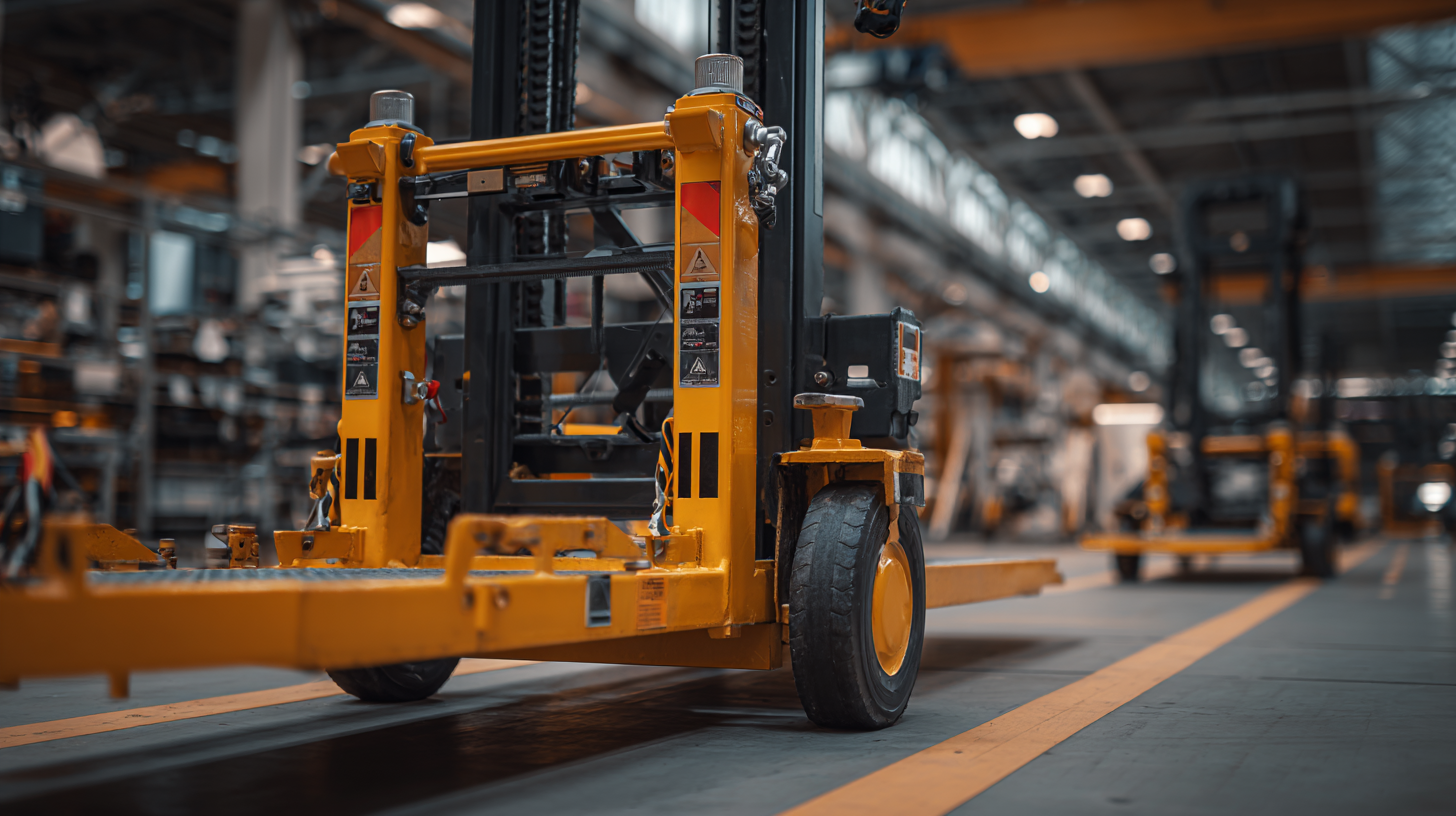
Market Analysis: Consumer Preferences Shaping Trolley Jack Innovations
You know, in today’s ever-changing world of manufacturing, what customers want really shapes the way new portable trolley jacks are coming to life. Just a little while back, Grand View Research shared that the global market for trolley jacks is projected to hit about 1.4 billion dollars by 2028, growing roughly 5.4% each year. That’s pretty impressive, and it's all thanks to folks looking for lighter, easier-to-handle models that make moving things around on the shop floor a whole lot simpler.
As companies start listening more closely to what workers actually need, we’re seeing some cool upgrades in how these jacks are built. Things like adjustable heights and smoother handling are now pretty much standard, because today’s workers care a lot about comfort and safety. Plus, with newer materials being used, these jacks are not just tougher but also more resistant to rust — which is great for the environment and saves money on maintenance over time.
Pro tip: When you're choosing a portable trolley jack, try to keep in mind how much weight it can handle and how easy it is to operate. These things really matter when it comes to getting stuff done safely and quickly. Also, don’t forget to look for certifications—these ensure your jack meets all the industry safety standards. And a little regular maintenance goes a long way; checking your gear now and then can save you from costly breakdowns and help your equipment last longer.
Global Regulatory Standards Influencing Trolley Jack Production Strategies
As the world of manufacturing keeps changing, the way we design portable trolley jacks is more and more influenced by various regulations. These rules aren’t the same everywhere—what’s required in one region might be different in another—so manufacturers need to carefully consider safety features, materials, and overall design to stay compliant. It’s not just about local laws either; international standards play a big role if you want your products to be sold worldwide.
Trying to keep up with all this regulation stuff pushes companies to get a bit creative—adopting new tech and smarter solutions that make the jacks safer and easier to use, all while ticking off the boxes on strict guidelines.
Oh, and a helpful tip? Make it a habit to regularly check for updates on regulations in the markets you're working in. Getting a grip on these fine details can save you from costly redesigns later and help things go more smoothly when you’re ready to launch.
Plus, working together with others in the industry is pretty important. Getting involved with organizations that set standards can help you stay in the loop about new rules and even influence how they evolve. Being proactive like this not only keeps you compliant but can also spark fresh ideas that better meet what customers want.
Another tip: team up with other manufacturers to swap insights about dealing with regulations. Sharing resources and strategies can make the whole process more efficient and less stressful—and hey, maybe even lead to better products in the end.
The Future of Portable Trolley Jacks in Global Manufacturing - Global Regulatory Standards Influencing Trolley Jack Production Strategies
| Region | Regulatory Standard | Impact on Production | Adoption Rate (%) | Future Trends |
|---|---|---|---|---|
| North America | ANSI/ASME Standards | Enhanced safety features | 85% | Increased automation |
| Europe | CE Marking | Mandatory compliance evaluation | 90% | Sustainability focus |
| Asia-Pacific | ISO 9001 | Quality management integration | 75% | Smart technology integration |
| South America | NBR Standards | Strength and stability improvements | 65% | Economic growth driven innovation |
| Middle East | GCC Standards | Safety and performance metrics | 70% | Increased demand for safety equipment |
Maximizing Vehicle Maintenance Efficiency: Insights from Recent Industry Reports on Portable Car Quick Lift Rubber Pads
In the quest for maximizing vehicle maintenance efficiency, the choice of the right tools and accessories plays a pivotal role. One such essential component is the rubber pad used in quick lift systems. Recent industry reports emphasize the importance of utilizing high-quality portable car lift accessories that enhance both safety and effectiveness during vehicle servicing. Among these, the LRP-1 Polyurethane Rubber Pad stands out as a prime solution for workshops looking to optimize their vehicle maintenance processes.
Designed specifically for vehicles with clip welded rails, the LRP-1 Rubber Pad offers a unique advantage by allowing users to insert the clip welded rail into the cross-cut groove of the pad. This design not only relieves pressure on the pad but also provides additional support for the vehicle, ensuring a stable lifting experience. Compatibility with all series of LUXMAIN Quick lift models makes the LRP-1 a versatile addition to any garage setup, reducing the risk of damage to vehicles while enhancing operational efficiency.
In light of the findings from recent industry reports, investing in products like the LRP-1 Rubber Pad is crucial for automotive professionals aiming to maintain high standards of service. By prioritizing quality and efficiency with the right accessories, workshops can streamline their maintenance processes and ultimately improve customer satisfaction.
FAQS
: Automation is leading to more sophisticated and user-friendly designs, with features like automatic height adjustment, load sensors, and mobile app connectivity being integrated to enhance usability and safety.
Nearly 70% of DIY enthusiasts prefer jacks that offer enhanced safety features and ease of operation, reflecting a consumer expectation for innovation in the automotive repair market.
Emerging materials such as carbon fiber, aluminum alloys, and durable polymers are being used to reduce the weight of trolley jacks while enhancing their strength, longevity, and performance.
Lightweight materials improve the strength-to-weight ratio of trolley jacks, enhancing their lifting capabilities and maneuverability, especially in tight spaces.
Sustainability is a key focus, with manufacturers reevaluating materials and processes to minimize environmental impact, which includes the use of recycled materials and energy-efficient production techniques.
Integrating sustainable practices not only benefits the planet but also enhances brand reputation and operational efficiency, making companies more competitive in the market.
Innovations like recyclable materials and better coatings are being developed to improve the longevity and performance of trolley jacks while reducing environmental impact.
As consumer demand for eco-friendly products rises, companies that prioritize sustainability in their manufacturing processes can differentiate themselves and gain a competitive edge.
The use of industrial robots in manufacturing is projected to grow by 15% annually, influencing the demand for advanced maintenance tools like portable trolley jacks.
Manufacturers are incorporating smart technology and enhanced safety features into trolley jack designs, aligning products with consumer preferences for innovation and usability.
Conclusion
Hey, have you noticed how quickly the world of manufacturing is changing? When it comes to Portable Trolley Jacks, a bunch of exciting trends are really shaping their future. For one, automation is seriously shaking things up—making these tools not just more efficient but also easier for folks to use. Plus, with new materials popping up, these jacks are becoming lighter without sacrificing durability, which is a big deal for mechanics who need reliable gear. And let’s not forget smart tech—it's making these jacks safer and more user-friendly than ever before.
On top of that, sustainability is becoming a top priority. Companies are starting to look into eco-friendly materials and greener manufacturing methods, which is pretty encouraging. Market trends show that customers are craving innovation—both in how these jacks look and how they work. Of course, keeping up with global safety and quality standards is still a must, guiding how products are made. As Yantai Tonghe Precision Industry keeps pushing forward with hydraulic control systems and car lifts, all these trends will just help shape the future of Portable Trolley Jacks in a way that’s better for everyone.
Related Posts
-

Maximize Your Investment with 5 Essential Tips for Affordable Repair and After Sales Support on Best Portable Truck Jack
-

Essential Checklist for Selecting the Best 3500kg Quick Lift Car Lift for Vehicle Maintenance
-

Innovative Solutions for Maximizing Efficiency with the Best 6000 Lb Car Lift
-

Experience Excellence in Manufacturing with the Best Mobile Forklift from a World Class Chinese Factory
-
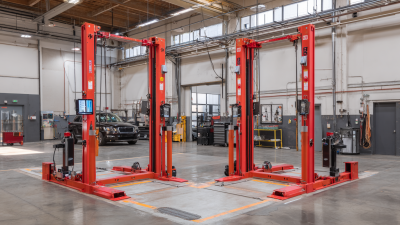
Comparing the Benefits of Portable Column Lift vs Traditional Lift Systems
-

Top Strategies for Maximizing Efficiency with Single Underground Lifts
Blog Tags:


